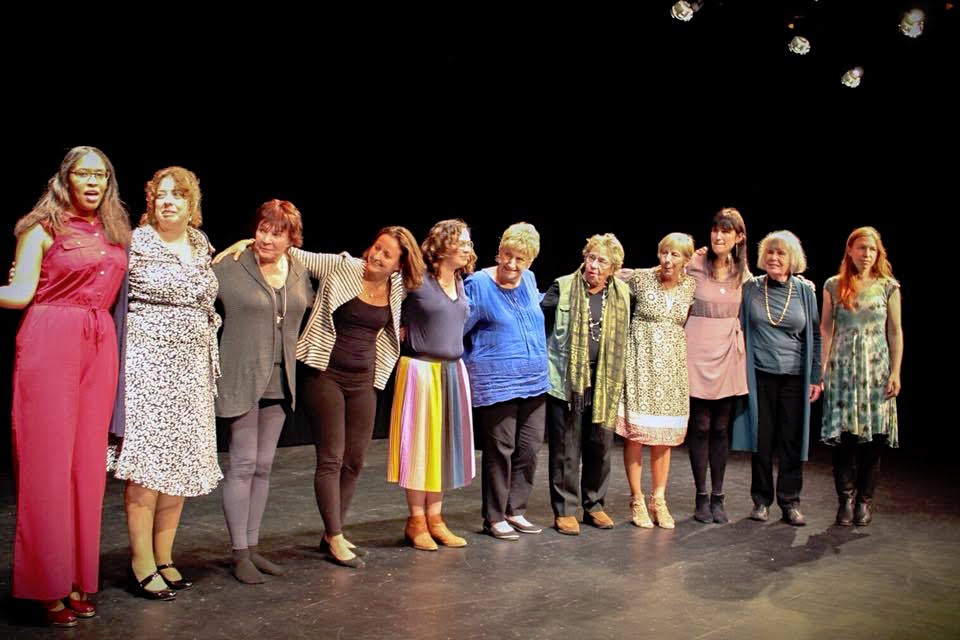For the past twelve years, the ‘Our Voices’ playwriting festival has supported women playwrights in gestating and producing plays, poems, and monologues by offering a day of workshops and performances at no cost.
Occuring annually in September, the festival has been hosted, for most of the twelve years, by the Ruth Nagel Jones Theatre of Wellesley College. “Nora Hussey, and now Marta Rainer, have been a huge support by making the theatre available to us for the whole day,” said Kelly DuMar, playwright, poet, educator, and founder of “Our Voices.”
DuMar started the festival in 2007 to spotlight dramatic works written by women. “It was an act of self-care,” she said. Finding a lack of supportive collaboration in her work life, she created that environment for herself and other women. “Creating and producing ‘Our Voices’ has been my way of honing my vision of what I have to offer as an artist, producer, and leader – to share the truth and beauty of women’s stories, help women develop as artists and human beings, and to take action against a producing culture where women’s voices have been historically under-represented on stage. Our perspectives, vision and experiences are missing from so much of our cultural history.”
This year the festival was held on Sunday, September 30. The afternoon was dedicated to sharing monologues and ten-minute plays in a workshop setting. In the evening, a reception with refreshments preceded performances of eight short plays or monologues by women. This year’s performances featured an adult incest survivor trying to heal her own blocked sexual urges, a conversation between a pregnant woman and a mother about breast feeding, and a monologue of an ancient stone sculpture come to life to celebrate the divinely feminine vulva as the source of women’s creativity and power. DuMar contributed a monologue, performed by her daughter, Francie, about an actor who shifts the power dynamics between actor and director at an audition.
The ‘Our Voices’ festival clears a space for these subjects to emerge artistically on the stage. “Clearly, women’s writing vision, voice and story were being under-selected in festivals open to both male and female playwrights. A festival of exclusively women’s voices seemed logical to counterbalance the trend of over-selecting male voices,” said DuMar.
In the midst of a difficult week for survivors of sexual trauma, DuMar incited empowerment. “It felt like an assertive act, seizing a stage, using our voices and imaginations to take a stand against a clique of entitled white male ‘gatekeepers’ who wield their political power with a manipulative, exploitive self-interest: You cannot silence women. A poet friend of mine, a male, told me when he arrived, ‘I can think of no better place to be after a week like this.’”
“Our Voices” models collaboration versus competition, and is an all volunteer production. “To be a truly inclusive event, it’s important to break down barriers to participation, both for the writers and for the audience. By making it a free, educational, community event, everyone profits,” said DuMar.
Many of the short plays and monologues first presented at Our Voices go on to have full productions in Boston theatres and beyond, as well as publications with dramatic publishers.
“The most satisfying aspect of ‘Our Voices’ playwrights and poets, every year, is the spirit of creativity and collaboration, respect and fascination they bring,” said DuMar, “and the power and satisfaction of expressing it in a place where they feel heard. I’m pleased to say we’ve achieved this EVERY year.”

Issue Date:
November, 2018
Article Body:
